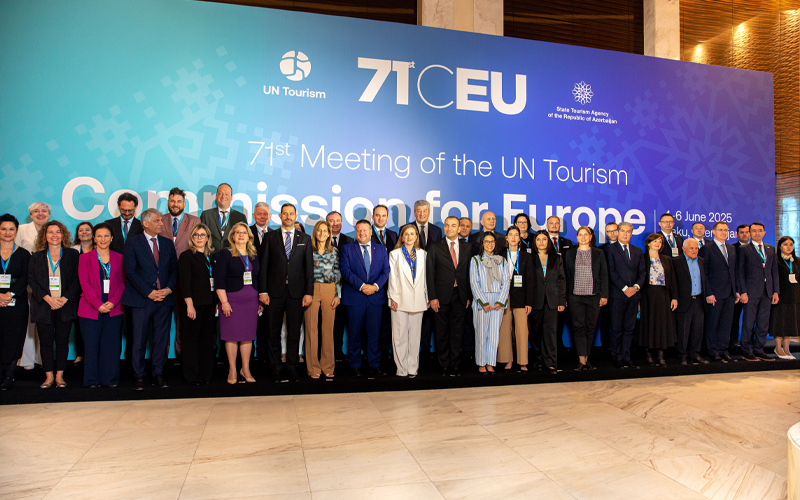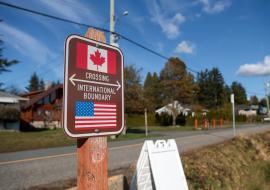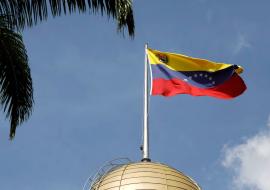Europe’s Tourism Leaders Gather in Baku

The 71st session of the UN Tourism Commission for Europe brought together key tourism stakeholders in Baku, Azerbaijan, to chart a collaborative course toward a more resilient, sustainable and innovative tourism sector. The gathering came as the region recorded 125 million international tourist arrivals and USD 7.25 billion in visitor spending in the first quarter of 2025—figures that underscore Europe’s ongoing recovery and global leadership in tourism.
UN Tourism Executive Director Natalia Bayona underscored the human dimension of the sector, noting its power to uplift youth, women and communities. “The energy and vision we’ve seen here in Azerbaijan mirrors the dynamism we see across the region,” she said, urging leaders to turn this momentum into inclusive prosperity and peacebuilding through tourism. Azerbaijan’s commitment to the cause was reaffirmed by H.E. Fuad Naghiyev, Chairman of the State Tourism Agency, who emphasized the country’s role as a strategic bridge connecting Europe with neighboring regions.
Several initiatives were spotlighted during the session. Among them, the Best Tourism Villages Network now includes 64 European villages, reinforcing rural development and cultural heritage. Meanwhile, tourism investment remains strong: nearly USD 63 billion in greenfield projects have been announced in Europe over the last five years. UN Tourism is also advancing destination innovation through its growing Innovation Network, new Open Innovation Challenges in countries like France, Malta and Lithuania, and targeted efforts in digital transformation and artificial intelligence.
The region’s focus on education and human capital was also emphasized. With a significant portion of Europe’s tourism workforce lacking formal qualifications, UN Tourism is expanding access to training through its Online Academy, which now counts over 6,000 European users. Thirteen new courses have been launched in collaboration with universities across the continent, helping to bridge skill gaps at all levels.
A special spotlight was placed on climate action, with a high-level conference titled “From Momentum to Milestones” running alongside the main session. UN Tourism Executive Director Zoritsa Urosevic stressed the need for data-driven strategies and alignment with global climate frameworks. The event also saw the launch of the COP29 Declaration on Enhanced Climate Action in Tourism, endorsed by 70 governments, building on the legacy of the Glasgow Declaration.
The meeting concluded with elections to various UN Tourism statutory bodies. Notably, Montenegro was elected Chair of the Commission for Europe for the first time, with Lithuania and Poland as Vice-Chairs. Other newly elected members include Azerbaijan, Croatia, France, Greece, Slovenia to the Executive Council, and Portugal and Czechia to the Committee on Tourism Online Education—signaling a renewed European commitment to leadership and collaboration in global tourism governance.














